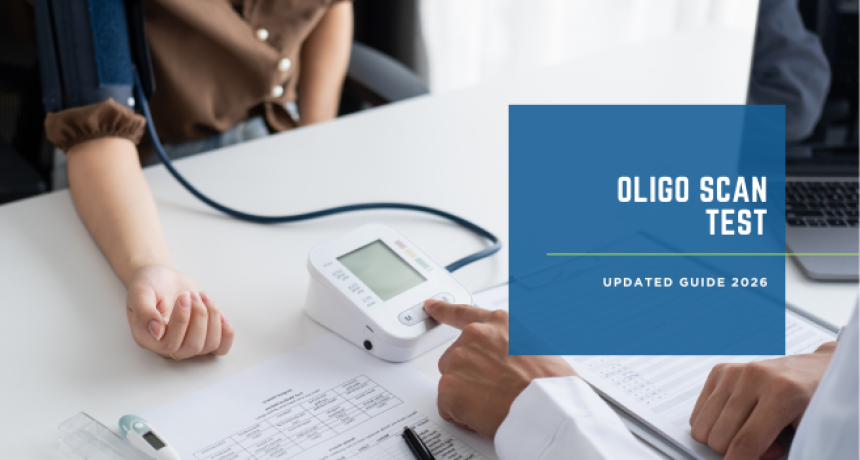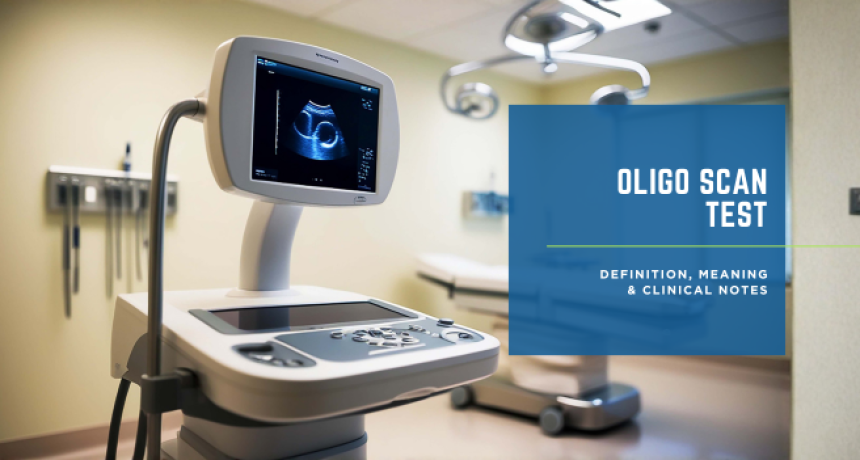How Do I Prevent Prediabetes From Turning Into Diabetes?
2025-01-23 Imagine sitting at your doctor's office, hearing the words "You have prediabetes." Your world shifts. Questions flood your mind. But here's what you need to know first: This is not a life sentence – it's your wake-up call. In the bustling streets and quiet homes of India, a silent storm is brewing. Every sixth adult you pass on the street could be affected by prediabetes. That's over 77 million Indians walking a tightrope between health and type 2 diabetes – many unaware they're even on this journey. But numbers only tell half the story. Picture this: A young girl at a birthday party, watching her friends dive into cake and sweets, while she sits back, feeling like an outsider. Or a father at his daughter's wedding, surrounded by traditional delicacies, but having to turn down each loving offer of food from relatives who don't understand why. These aren't just scenarios – they're daily realities for millions living with prediabetes. It's the missed chai breaks with colleagues, the awkward explanations at family gatherings, the constant mental arithmetic before every meal. The emotional weight of prediabetes often feels heavier than any physical symptoms. But here's the truth that changes everything: Prediabetes is not a one-way street to Type 2 Diabetes. Think of prediabetes as your body's alarm system – loud and clear, yes, but also an opportunity. While modern lifestyles, genetic factors, and dietary habits may have led you here, you hold the power to change course. Your story isn't written in stone – it's being written by the choices you make today. In this guide, we'll walk with you through this journey. We'll explore not just the medical facts, but the real, human experience of living with prediabetes. More importantly, we'll show you practical, achievable steps to reclaim control of your health narrative. Because prediabetes isn't the end of your story – it's the beginning of your comeback. Take a moment to reflect on these questions: Do you find yourself constantly thirsty, no matter how much you drink? Have you noticed unexplained weight changes recently? Do small cuts take longer to heal than they used to? Are you feeling unusually tired, even after a full night's sleep? Do you find yourself using the bathroom more frequently? If you answered yes to two or more questions, it might be time for a check-up. Living with prediabetes often feels like you’re walking a tightrope. It's not yet diabetes, but it requires constant vigilance and significant lifestyle adjustments. Here's a glimpse into the daily challenges that come with the condition: You may constantly find yourself monitoring your food choices, often feeling restricted: Restrictive Choices: You’re always mindful of your carbohydrate intake, avoiding sugary treats and processed foods. Every time you look at a menu or buffet, you wonder, "What can I have that's safe?" Social Pressure: Dining out or attending parties can become stressful, as you navigate limited food options and awkward conversations about your dietary needs. The desire to blend in, to just enjoy a meal with friends or family, becomes overshadowed by the feeling that you're “the different one.” It's easy to feel like food is no longer a joy—it's a battlefield. But remember, you are not alone in this journey. Adjusting to a healthier lifestyle often feels overwhelming: Exercise Commitment: Finding time to exercise amidst the demands of work, family, and other responsibilities can feel impossible. The motivation to keep moving, when you’re already juggling a hundred things, often dips. Energy Fluctuations: With fluctuating blood sugar, fatigue becomes your constant companion. You may feel tired more often than not, struggling to summon the energy to complete even the simplest tasks. The exhaustion can sometimes feel like a weight on your shoulders, but each step you take to prioritize your health is a victory in itself. Prediabetes doesn’t just affect your body—it affects your mind and heart too: Fear of the Future: The looming possibility of developing Type 2 Diabetes can create stress and anxiety. You worry about your health, your future, and what’s to come. Isolation: The feeling of being restricted in social settings can make you feel isolated. You may start avoiding social gatherings, not because you don’t want to be there, but because you’re afraid of what others will think of your “special” dietary needs. The emotional toll of prediabetes is real. But just as the storm passes, so too can this period of fear and uncertainty. Small changes can make a huge difference. The good news is that you don’t have to be a passive observer of your health. Taking proactive steps today can prevent prediabetes from becoming Type 2 Diabetes tomorrow. A nutritious, well-rounded diet is your first line of defense. Think of it as armor for your body and mind: What to Include: High-fiber foods like vegetables, whole grains, and legumes: These foods slow down the absorption of sugar and help stabilize blood sugar levels. Lean proteins like fish, chicken, and tofu: Protein helps in maintaining muscle mass and stabilizing blood sugar. Healthy fats from nuts, seeds, and olive oil: Healthy fats help regulate blood sugar and support heart health. What to Avoid: Sugary beverages, processed snacks, and refined carbohydrates: These foods spike blood sugar, leading to further insulin resistance and increased risk. Your food choices are more than just fuel—they’re your weapons in the battle against prediabetes. Exercise doesn’t just help you burn calories—it enhances insulin sensitivity and stabilizes blood sugar. But how do you get started when you’re already overwhelmed? Moderate Activities: Brisk walking, cycling, or swimming for 30 minutes a day is a great place to begin. It’s about consistency, not perfection. Strength Training: Building muscle through weightlifting or resistance exercises can improve your body’s ability to process glucose. Even a 10-minute walk can transform your health. Small actions lead to big changes. Chronic stress can make insulin resistance worse, so it’s crucial to find ways to manage it: Meditation or mindfulness practices: These can reduce stress hormones and improve blood sugar control. Regular deep-breathing exercises: These lower your body’s fight-or-flight response, which in turn helps regulate blood sugar levels. Journaling: Writing down your emotions can help you process feelings of anxiety or fear, which is key in managing your mental health. Taking a deep breath isn’t just calming—it’s healing. Regular check-ups help you track your progress and catch any warning signs early: Key Metrics: Keep an eye on your fasting blood sugar, HbA1c, and body weight. These markers will help you understand where you stand and guide your next steps. The more you know, the more you can take charge of your health. Getting enough sleep is critical for blood sugar regulation. Aim for 7-8 hours of restful sleep each night. Poor sleep can interfere with insulin production and cause your body to crave unhealthy foods. Never underestimate the power of a good night’s sleep in your health journey. If your child has been diagnosed with prediabetes, taking action early is key to reversing the condition. As a parent, your role is crucial in helping them adopt healthier habits without overwhelming them. Encourage Healthy Eating: Make family meals a time for togetherness, not restriction. Include nutritious foods that everyone can enjoy. Stay Active Together: Engage in fun, physical activities like hiking, biking, or playing sports. Make exercise a family affair. Educate Without Overwhelming: Talk to them about sugar’s effects and the importance of moderation, without making them feel different from their peers. Related Blog: "Reversing Diabetes After 15 Years: Is It Possible? Breakthrough Research Says YES!" If you suspect that you might be at risk for diabetes or prediabetes, it’s essential to take proactive steps toward understanding your health. Taking a quick and simple quiz can help you assess whether you're showing early signs of risk. This self-assessment is an easy way to gauge key factors like your lifestyle habits, energy levels, and other indicators that could point toward a potential problem. By taking this test, you can gain valuable insight into your risk and empower yourself to make informed decisions for a healthier future. Take the quiz now and take the first step toward better health! Take the full quiz and discover your risk! Here are some foods that can stabilize your blood sugar levels: Insulin Resistance: Cells stop responding to insulin effectively. Elevated Blood Sugar: Fasting glucose levels rise. Impaired Tolerance: Blood sugar spikes after meals. Diabetes Diagnosis: Consistently high glucose levels. Prediabetes doesn’t have to lead to diabetes. Start making changes today: Consult a health expert for personalized guidance. Explore our blog: "What Are the Early Signs of Prediabetes? Check out our recommended supplements for blood sugar management. Subscribe: Sign up for our newsletter for tips, recipes, and tools to support your journey. Prediabetes is a crucial turning point. With informed decisions, consistent effort, and a little patience, you can change your health trajectory. Remember, every small step you take—from choosing a healthier snack to taking a short walk—brings you closer to a healthier, diabetes-free future. If you're looking for the best diabetes clinic in Delhi, expert guidance can help you along the way.Are You At The Risk?
The Daily Struggles of Prediabetes: More Than Just Numbers

1. Dietary Challenges: The Food Dilemma
2. Lifestyle Adjustments: The Strain of Change
3. Emotional and Social Impact: The Invisible Burden
Turning the Tide: Steps to Prevent Progression

1. Embrace a Balanced Diet: Fuel for Your Future
2. Incorporate Regular Exercise: Get Moving, Get Healthy
3. Prioritize Stress Management: Calm the Mind, Heal the Body
4. Monitor Your Health: Stay Informed, Stay Empowered
5. Ensure Quality Sleep: Rest for a Stronger Tomorrow

How Can I Help My 14-Year-Old Reverse Prediabetes?

Interactive Quiz: Are You at Risk of Diabetes?

What You Eat Matters
Infographic: The Stages of Prediabetes to Diabetes Progression

Take Control of Your Diabetes Today!


Conclusion: A Healthier Future Is Within Reach
.png)















